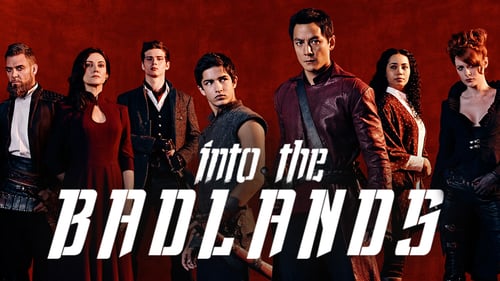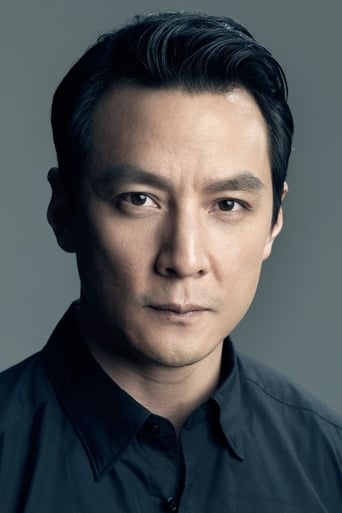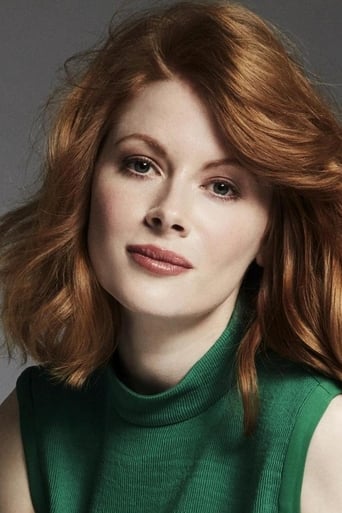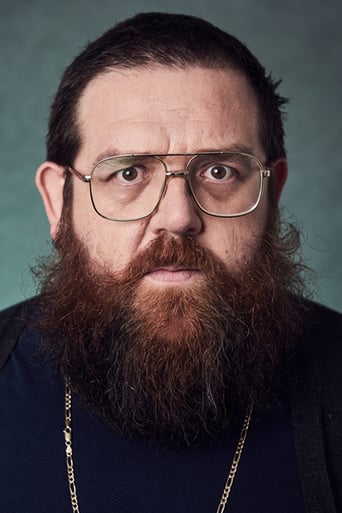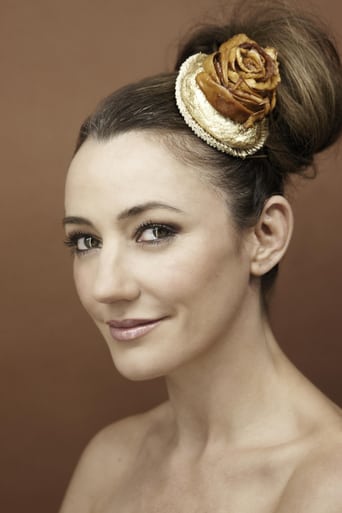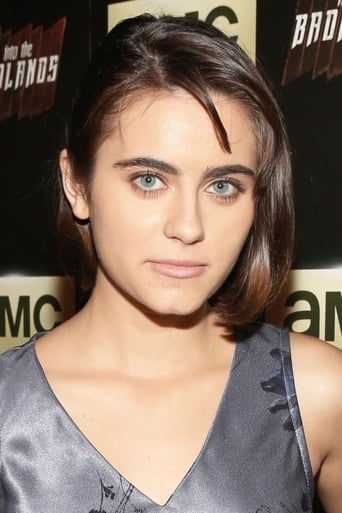alan_paul
I enjoyed season one, and was willing to overlook the familiar, trope-heavy concept, the over-reliance on gratuitous bloody action scenes, lazy writing, and cheesy acting because the story moved along quickly and some of the martial arts scenes were nicely done.Season two dragged and sagged, with even the comedy styling of Nick Frost wearing thin about midway through the padded, predictable ten episodes.Season three is sixteen episodes, diluted even further, so I'm moving on from the eight episode season one of Stranger Things to the nine episode season two. Lots of great shows, so little time.Now Exiting, Into The Badlands.
Andariel Halo
Little about this series drew me in to begin with, and I was only made to watch out of curiosity and fascination with the actors like marton csokas and Emily beecham. the series also drew my attention by being post-apocalyptic, within the point in time between "grungy Fallout-style immediate aftermath" and "a completely new fantasy world like Planet of the Apes".
For reasons apparently determined to be "mutual consensus by all the Barons so as to avoid genuine extinction", all the fiefdoms in the Badlands do not use firearms, yet we see certain individuals making use of explosives in such a way that is clearly not looked well upon.
the political setting is one that is compelling, with this being an unnamed region of the former United States in which a handful of "Barons" essentially own and run fiefdoms, literally in the style of old-world plantation-style Manors, where the fields are worked by serfs called "cogs" and kept in order by an overseer/warrior caste called "clippers". Each Baron seems to have a specialty crop or product they grow or harvest, such as poppyseeds/opium, oil, etcetera, and there have been frequent wars between baronies culminating in what is considered to be an unusually long period of peace, one which because this is a drama television show, is bound to be broken.
the main players in this stage of the series are Quinn, the baron of the main character Sonny and the one fully intent on wrecking the peace of the land with his overwhelming numbers, played with festive ham by Marton Csokas in a thoroughly inexplicable accent that seems to straddle an American Southern accent with some manner of pseudo-"Frasier"-esque north atlantic/british amalgam. Next is Minerva, known as "The Widow", the former wife of a Baron before she killed him, and is now leading a populist-style revolution with the express aim of overthrowing the Barony system with a particular eye towards the liberation and enfranchisement of women, and the liberation of the Cogs. She employs a cadre of elite female fighters, including Tilda and Odessa, who become major characters over the series.
This is all in the foreground, alongside what is apparently the main driving narratives involving Sonny and an orphan kid named MK. Sonny is basically a stereotypical "hitman with a conscience" who grows disaffected with his Baron and starts stirring up trouble, while MK is a flat, boring, one-dimensional whiny teen who gets a superpower when he is cut called "The Gift". When he's cut, his eyes go completely black and he basically gains kung fu superpowers while being extremely damage resistant. Others sprout up throughout the series with this ability. Personally, I find his story insufferably boring, and as the series progresses, Sonny's story becomes insufferably boring as well.
The show is utterly stolen by the female cast, including Orla Brady as Lydia, Quinn's first wife (polygamy), Ally Ioannides as Tilda, and Emily Beecham as The Widow. Unfortunately, equal time is also given to MK and Sonny, both of whom want nothing to do with the overall picture of the Badlands and are just plain boring.
Season one is focused mainly on the political unfolding in the Badlands, with Quinn utterly demolishing the sustained peace and creating chaos in which The Widow can not only wreak havoc but thrive. In the background as well, there are constant mentions of a mythical city, which may or may not have either survived the "apocalypse" or else be in possession of a whole lot of good things like medicines and technology that everyone wants to get to but doesn't know how to.
Without spoiling much of the story as it unfolds throughout the 2 seasons and the now-unfolding 3rd season, this rather amateurishly-executed setup, working surprisingly well throughout the first season, completely falls apart in the 2nd season, precipitated largely by The Widow inexplicably becoming "bad". For no reason at all, she begins to betray certain people, exploit and abuse others, and go back on some of her "liberte, egalite, fraternite" values for no valid gain or benefit. She decides to basically alienate her surrogate daughter and nearly kills her due to a hackneyed ploy to try to work with Quinn which ends up falling apart and contributing absolutely nothing anyway.
From there, the series begins to flop about, throwing MK into unimportant season-length situations to hog up screen time and just generally continuing to rip apart The Widow's initial character build and motivations by making her seem to just do things spur of the moment with no clear or consistent plan towards literally anything, other than perhaps "beat other Barons". She and her minions at once espouse her original "liberte, egalite, fraternite" type message, while also engaging in nonsensical cartoon-villainy things, like casually murdering underlings who dare question them.
Despite this, I'm sticking along with the series, hoping that things improve, as well as still drawn in by the mystery of this city which I think is called "Azra" but which I may have wrong.
One of the main complaints I have about the series on a more technical/physical level is; the war and battles.Since this is essentially fixated on martial arts, with lots of wire-choreography like kung fu movies, it cannot have guns or explosives in large doses. At the same time it tries to be stylish, a mix of a sort of post-apocalyptic Western kung fu western, so as a result, people are dressed in wild and wacky outfits with varying degrees of comfort.
Despite this, some aspects of the plot and setting necessitate the use of things like crossbows. And while it is rather silly to see people casually "flicking" crossbow bolts aside with knives and swords like Jedi, it's not a sustainable sort of thing, otherwise who would keep using crossbows? Some sequences as well necessitate the use of crossbows as effective weapons, such as a season 3 sequence involving a "sniper alley" manned by crossbow snipers which wouldn't work if anyone with a knife could just casually whack the bolts aside.
This further escalates the silliness to a level of utter maddening stupidity, best exemplified in season 3 when we get a brief depiction of a pitched battle sequence between The Widow's clippers and another Baron's clippers. They are depicted with NO armor, NO shields, and single one-handed swords, charging at each other across an open field, while crossbowmen fire from the rear. I don't even think anyone actually won the battle, everyone just instantly died in the first minute.I used to be dumb and stupid and look at depictions of things like the Napoleonic Wars and the American Civil War, with infantry walking casually up to each other and firing rifles at each other, thinking this was a great way for everyone to die easily and instantly. As it turns out, muskets back then were so horrendously inaccurate that being one of these line infantry was probably one of the safest places to be on the battlefield, as cavalry still had to go hand to hand melee and artillery were firing at each other with the constant risk of your own cannon exploding next to you.
This series just throws hundreds of essentially naked people with deadly swords running at each other while crossbows fire at them and consider this a sound battle strategy. It's not even depicted as working in the series, as we see one "heroic" soldier of The Widow's pick up a flag and run defiantly at the enemy, only to be completely and utterly butchered almost instantly by the crossbowmen alone, because she didn't have any armor or even a shield.I get that this is meant to be focused mostly on martial arts, but the thing about martial arts is it is done by a handful of people in a rather small amount of space. The medieval Chinese/Japanese didn't send their kung fu/karate masters out onto the battle to bounce around each other; they had heavily armored soldiers armed with spears, shields, swords, crossbows, even muskets and cannons.

